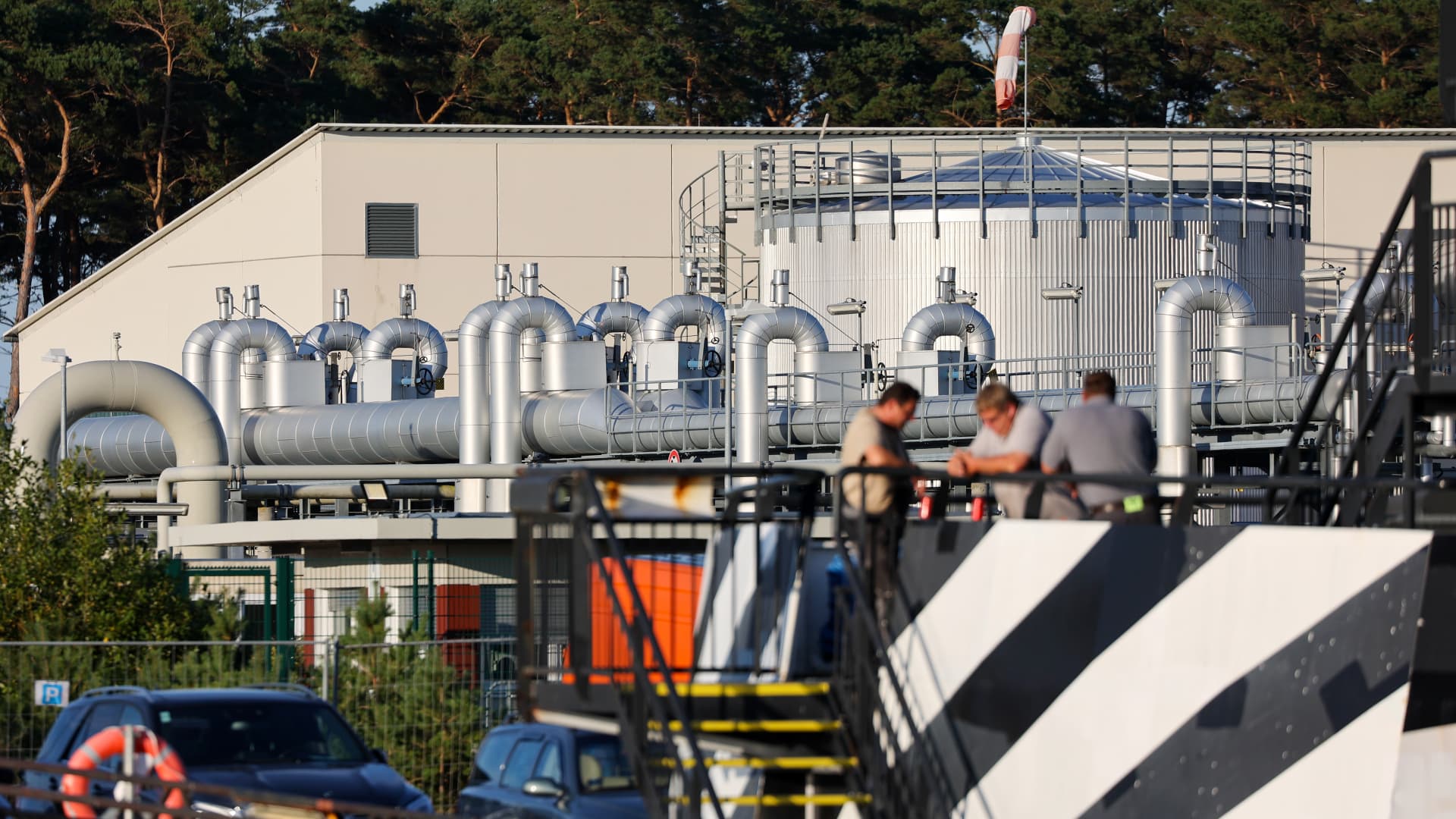European gas prices surge as Russian pipeline maintenance fuels fears of a total shutdown

European natural gas prices surged on Monday after Russia’s state-owned energy giant Gazprom said it would shut down Europe’s single biggest piece of gas infrastructure for three days from the end of the month.
The unscheduled maintenance works on the Nord Stream 1 pipeline, which runs from Russia to Germany via the Baltic Sea, deepen a gas dispute between Russia and the European Union and exacerbate both the risk of a recession and a winter shortage.
The front-month gas price at the Dutch TTF hub, a European benchmark for natural gas trading, jumped 19% on Monday to reach 291.5 euros ($291.9) per megawatt hour.
The contract closed on Friday at a record high of 244.55 euros per megawatt hour, registering its fifth consecutive weekly gain.
Gazprom said Friday that the shutdown was because the pipeline’s only remaining compressor required servicing. Gas flows via the Nord Stream 1 pipeline will be suspended for the three-day period from Aug. 31 to Sept. 2.
Gazprom said gas transmission would resume at a rate of 33 million cubic meters per day when the maintenance work is completed “provided that no malfunctions are identified.”
The announcement of the temporary shutdown comes as European governments scramble to fill underground storage facilities with natural gas supplies in a bid to have enough fuel to keep homes warm during the coming months.
Russia has drastically reduced natural gas supplies to Europe in recent weeks, with flows via the Nord Stream 1 pipeline currently operating at just 20% of the agreed-upon volume.
Moscow has previously blamed faulty and delayed equipment for the sharp drop in gas supplies.
Germany, however, considers the supply cut to be a political maneuver designed to sow uncertainty across the bloc and boost energy prices amid the Kremlin’s onslaught against Ukraine.
Two grave risks
Until recently, Germany bought more than half of its gas from Russia. And the government of Europe’s largest economy is now battling to shore up winter gas supplies amid growing fears that Moscow could soon turn off the taps completely.
What’s more, Europe’s race to save enough gas comes at a time of skyrocketing prices. The surge in energy costs is driving up household bills, pushing inflation to its highest level in decades and squeezing people’s spending power.
Holger Schmieding, chief economist at Berenberg Bank, said Gazprom’s latest announcement was an apparent attempt to exploit Europe’s dependence on Russian gas.
“On its own, a brief closure of the pipeline would not make a major difference, especially as Russia has reduced its gas exports through NS1 to 20% of capacity since 27 July anyway,” Schmieding said in a research note.
“But it highlights two grave risks: (i) Russia may falsely claim that it cannot re-open the pipeline afterwards because of a ‘technical issue’ that could only be resolved if Western sanctions were lifted, and (ii) Russia may also shut down its other pipelines to Europe later on,” he added.
Schmieding said higher prices for even scarcer gas supplies would “worsen the serious recession into which Europe is falling already” and warned an immediate further cut in Russian flows would raise the likelihood that Germany may face a winter shortage.




